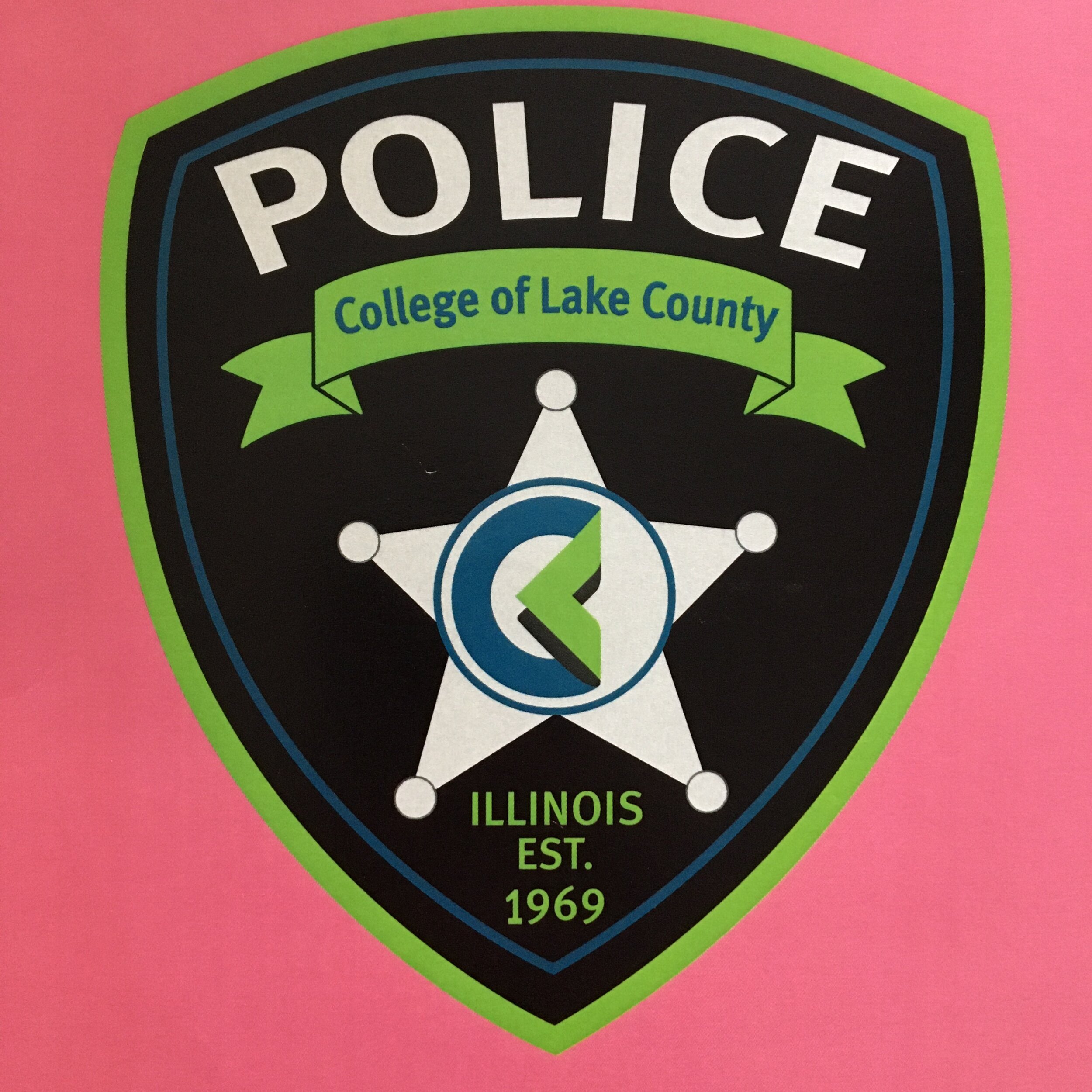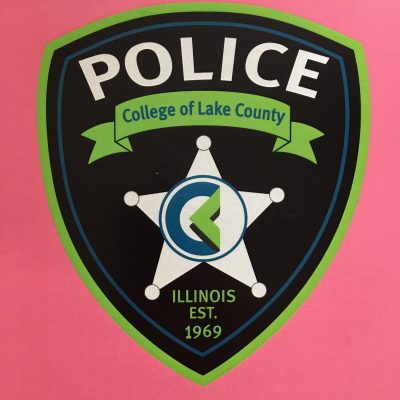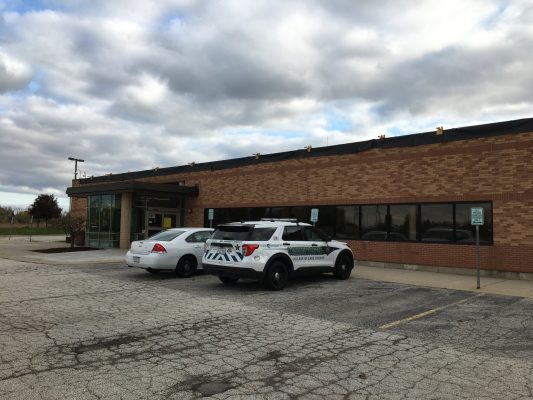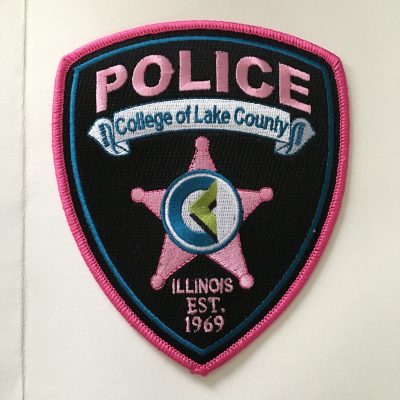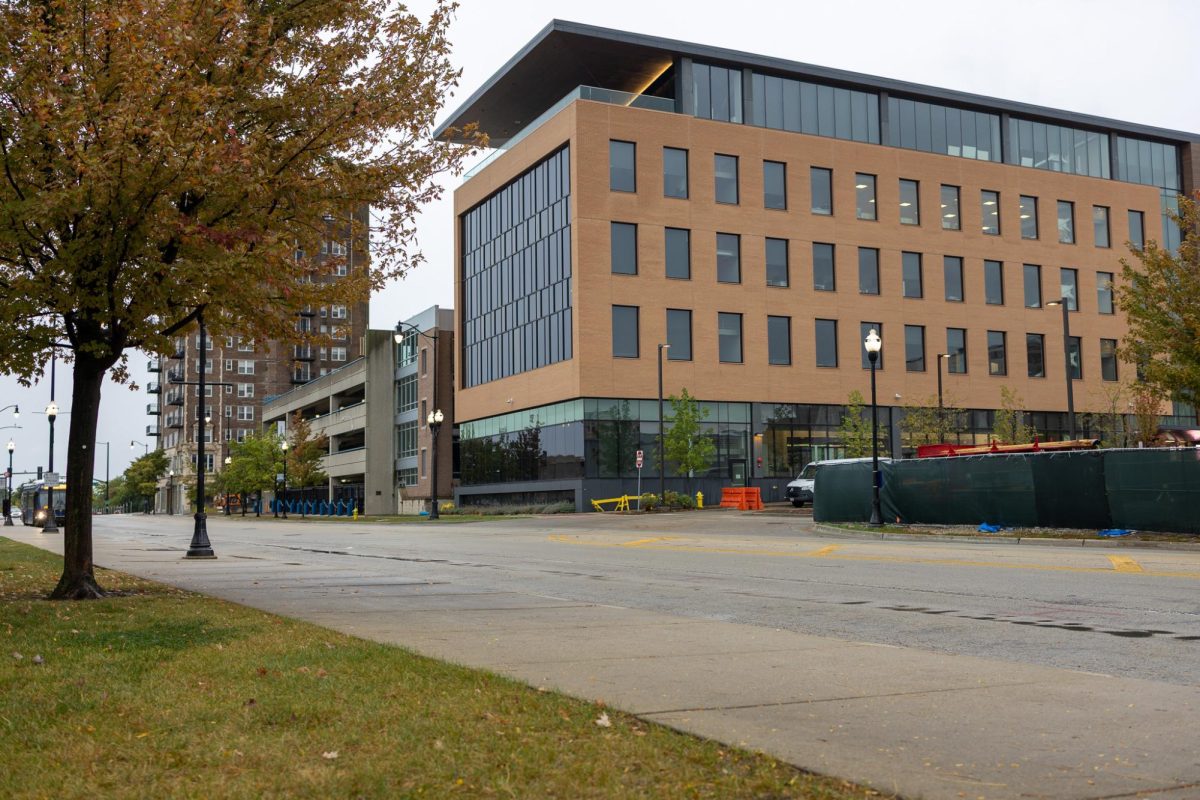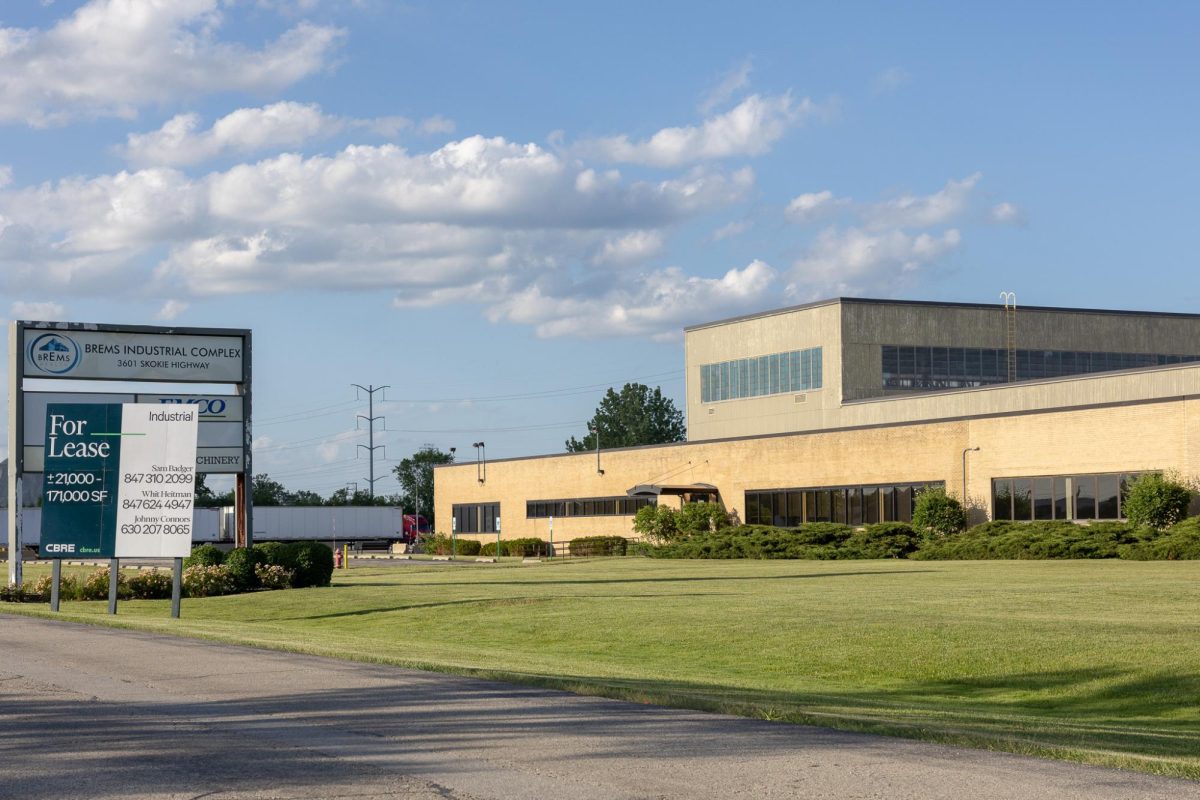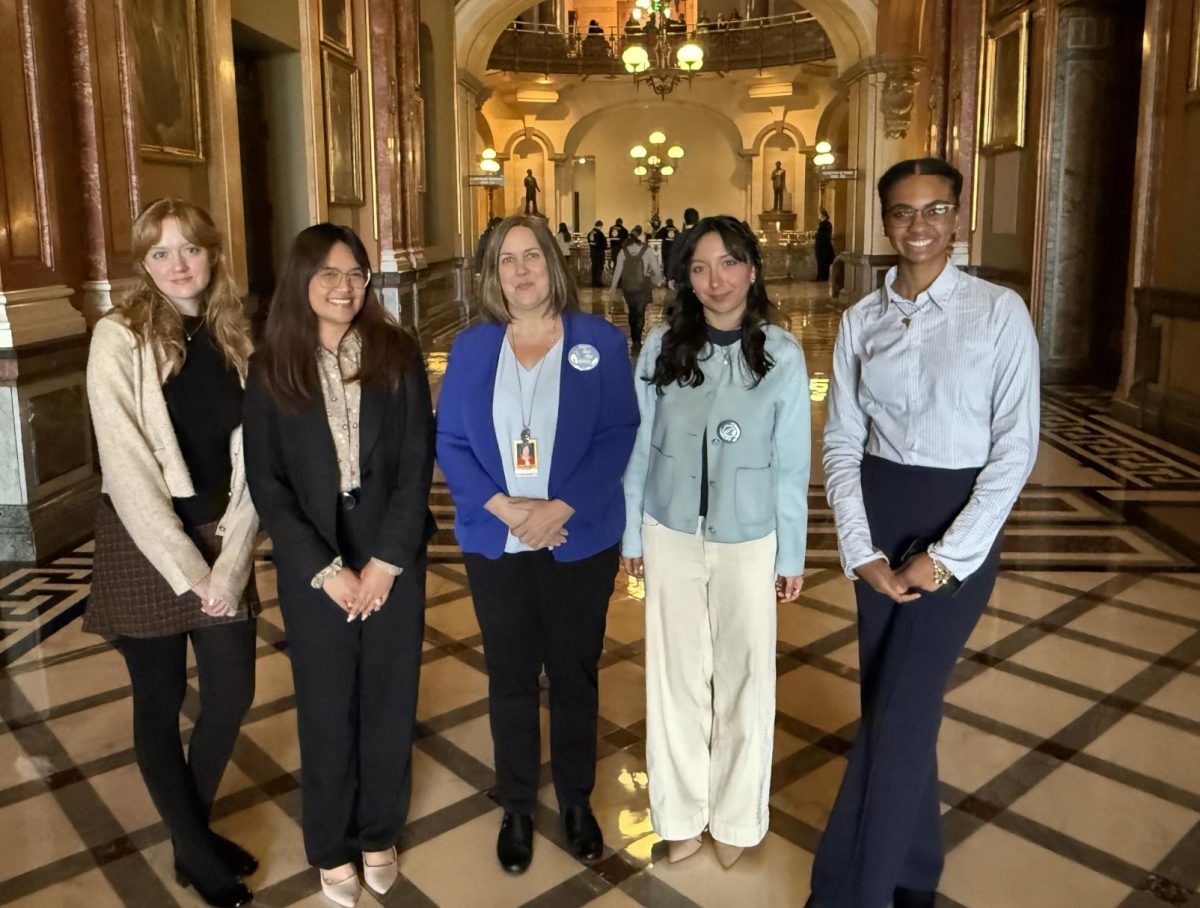As a show of solidarity and support during National Breast Cancer Awareness Month, the College of Lake County Police Department participated for the first time in the Pink Patch Project.
The project is a fundraising initiative built around having officers sport bright pink patches spark conversation about Breast Cancer research.
Sergeant John Lawson is a police officer at the college and initiated CLC’s entry into the Pink Patch Project this year.
The cover of the CLC Police Department’s brochure for the Pink Patch Project. Photo via Stephen Kelley.
“I spearheaded this project for a couple of reasons,” commented Sergeant Lawson in an interview. “My wife is a breast cancer survivor… and during the time she had breast cancer, she was pregnant with my younger son … at that time, the [doctors said] ‘you shouldn’t have the baby, you should abort.’ We made the decision to have the baby, and now my son, 28 years later, is a police officer in East Dundee. He’s on the Kane County SWAT unit… I sort of have some compassion for the breast cancer project. I’m a cancer survivor. I wanted to make sure we started [the project] here because it’s important.”
Sergeant Lawson also shared that it has been incredible to have the entire CLC department active in the project as a show of support.
“To see all the other officers just walking around with the pink [patches] on, and we have the pink ribbons on our uniforms also… it’s great,” he remarked. “It feels good for me not only personally, but it’s an excellent show of support for breast cancer survivors, and also the people who [have] passed away from breast cancer.”
This year, however, the program has looked different.
CLC Police Department. Photo via Stephen Kelley.
Typically, after wearing the patches around and interacting with their communities, the departments move into the second part of the project, offering all of the patches they have worn for sale and giving all proceeds to the Pink Patch Project or directly to Breast Cancer research charities.
Due to the COVID-19 pandemic and the necessity of social distancing, participating departments, including the CLC Police, have decided to refrain from offering their patches for purchase.
Because most CLC students and staff have been off-campus or remote, officers’ opportunities to sit down and talk about the initiative with students are reduced.
Pink patch worn by CLC’s Police Officers. Photo via Stephen Kelley.
For the CLC community, most awareness about the project itself has come through social media and the college’s public relations posts. Despite the circumstances, the department has still received immense support from the CLC faculty and the Grayslake community.
“The cooperation and the positive comments that we’ve received from the college administration has been overwhelming,” said Sergeant Lawson, “You need to have the cooperation from everybody for a project like that.”
Although the patches are not commercially available for the project’s fundraising component, anticipation for next year’s initiative is already creating interest and excitement in both officers and patrons.
“There’s a lot of interest already out there. People [are] saying ‘hey, next year I want to buy one!’”
Having already received several calls from CLC staff and other community members expressing interest and support for the program, Sergeant Lawson insisted that contributions to any breast cancer research organization are much appreciated and valued.
“Go online, find [an organization for breast cancer research] you feel comfortable with, and donate through them.”
The Breast Cancer Research Foundation accepts donations through the mail, phone, and electronically through its website.

